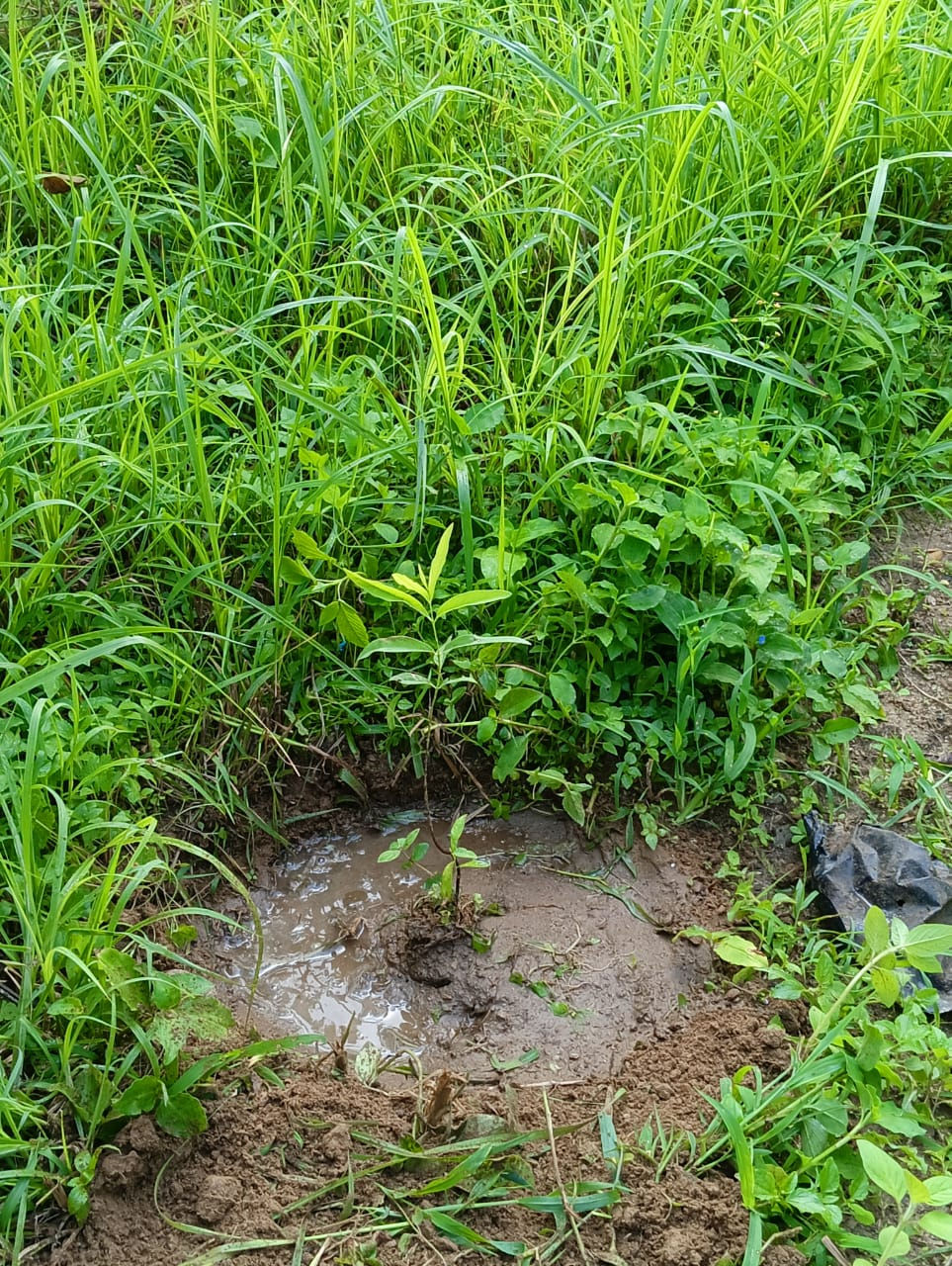"Afforestation Project - 300 Sandalwood plants - (2023-2024)-Reviving the Green: Sponsored by IQOR India Private Limited"
- Amrita Devi Foundation
- Apr 13, 2024
- 4 min read
Updated: Sep 6, 2024
Afforestation
Objective
The objective of this project is to implement afforestation in the villages where the farmers are unable to harvest their land due to migration and wild animals. We will work with the local communities to plant trees that produce fruits and wood, providing both environmental and economic benefits.
The villagers will be paid to take care of the trees, creating job opportunities and income for them. We will choose those trees that produce fruit or woods so that they are valuable for the villagers and they take care of them. promote the use of smokeless chulhas for cooking in households. The aim is to reduce indoor air pollution, promote a cleaner environment, and improve the health of women and children in rural areas. This project will contribute towards achieving the Sustainable Development Goals (SDGs) related to clean energy, health, and the environment.
Benefits of Afforestation
Afforestation has a significant impact on climate change. It can help to reduce carbon dioxide levels in the atmosphere by sequestering carbon in the trees and the soil. Moreover, it can help to prevent soil erosion and reduce the impact of floods.
Afforestation also has several socio-economic benefits. It creates job opportunities for the local communities, generates income, and provides the opportunity to harvest fruits and wood from the trees. This project will also help in the overall development of the community.
Accomplishment till now
Land Identification: We have Identified suitable land for planting trees in consultation with the local community. We will be using the private land of the villagers which is currently unused due to less number of people in the village and the wild animals destroying the crop.
Baseline Survey: We have conducted a baseline survey to assess the existing vegetation, soil quality, and water availability. This will help in choosing the appropriate species of trees for the project.
Appointment of Consultant/Project Coordinator: We have appointed Consultant/Project Coordinator who will be working with us in the plantation work.
Species for plantation: We will plant Chandan (Sandalwood) plants with some plants, which will support the local ecosystem. Our aim is to create a sustainable and resilient forest ecosystem that will provide long-lasting benefits to the environment and local community
Target Location
Village-Ghughuti, District-Almora, Uttarakhand, India.
Planted 400 Trees (300 Sandalwood and 100 host plants)
We have successfully planted 400 trees (300 Sandalwood and 100 host plants) as a part of our commitment to environmental sustainability.These trees represent not just a greener landscape but a symbol of our dedication to a healthier planet.
Work for Sustainability of Trees
For nurturing these trees, we are proud to have created employment opportunities for a selected group of individuals who are actively involved in caring for these plants.This initiative not only contributes to the well-being of our environment but also supports the livelihoods of our community members.
Pictures of Afforesation:
Video Gallery
Experience the project in motion through our video gallery .Gain insights into the meticulous planning,dedication of the planting team,and the overarching impact of this collaborative venture.
Impact we have created
(An income of 3 Crores in next 10-12 years)
The impact expected in the future
# of Plants | Income per tree from branches after 5-7 years in INR | Income from branches (we can do lopping in every two year) | Avg wood per tree in Kg after 10-12 years | Per Kg wood rate | Income by selling the trees after 10-12 years |
1 | 5000 | 5000 | 10 | 10000 | 1,00000 |
300 | 5000 | 1,50,0000 | 10 | 10000 | 3,00,00,000 |
*Above is the rate as on today, the rates might be double by the time plants become tree and ready to give return
*All above incomes are on the lower side. We can get more rate based on the quality of the tree
*Tree Lopping is a process of cutting down entire branches, or even whole trees, for a variety of reasons. This can include the removal of dead or diseased branches to reduce the risk of further damage to the tree, as well as the removal of branches blocking roads and sightlines.
Coverage in News
We have educated villagers benefits of Afforestation and benefits of planted trees:
Empowering Our Villagers Through Education on Afforestation and Tree Plantation.
We are pleased to share that our recent initiative aimed at educating villagers about the importance of afforestation and the benefits of cultivating chandan (sandalwood) and devdar (cedar) trees has been a significant success.
Through informative sessions and workshops, we've empowered our community members with valuable knowledge about the positive impact of afforestation on the environment and the numerous advantages of cultivating these specific tree varieties.
The benefits highlighted include:
1. Environmental Conservation:
Afforestation contributes to a healthier environment by enhancing air quality, preventing soil erosion, and promoting biodiversity.
2. Economic Opportunities:
The cultivation of chandan and devdar trees not only aids in environmental conservation but also opens up economic opportunities for our villagers through sustainable harvesting and sale of these valuable resources.
3. Medicinal and Aromatic Properties:
Chandan is renowned for its medicinal and aromatic properties, while deodar wood is often used for various purposes, including construction and medicinal applications.
4. Carbon Sequestration:
Trees play a crucial role in mitigating climate change by absorbing and storing carbon dioxide. Afforestation with chandan and deodar trees contributes significantly to carbon sequestration.
We believe that by fostering a deeper understanding of these benefits, we are not only promoting sustainable practices but also paving the way for a more prosperous and environmentally conscious community.
Thank you iQor services Pvt Ltd for your continued support in our efforts towards a greener and more sustainable future.










































Comments